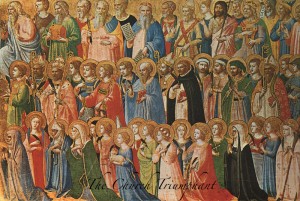Many contemporary critics of the faith charge that Christianity is a barrier to progress. Of course, these critics are prone to have a twisted view of progress, one involving moral and spiritual decline. But they also suffer from historical blindness. If they did their homework, they would see that God’s people have been extraordinary agents of social health, artistic excellence, and scientific advance. By God’s common grace and providence, non-believers also do remarkable things, but there is nothing to compare with the consistent, splendid record of the saints. Yes, the Church has sometimes embarrassed herself, as during the Crusades and the Salem witch trials. But the overwhelming weight of good is undeniable—and indispensable to civilization.
 A number of contemporary books make this point beautifully.1 Chapter by chapter, they chronicle the contributions of those who have claimed the name of Christ—accomplishments in charity, government, education, science, economics, exploration, medicine, and the arts. For instance, one book presents the reader with a single-page roll call of 30 scientific pioneers, such as Joseph Lister, the father of antiseptic surgery, and James Clerk Maxwell, the founder of electrodynamics.2
A number of contemporary books make this point beautifully.1 Chapter by chapter, they chronicle the contributions of those who have claimed the name of Christ—accomplishments in charity, government, education, science, economics, exploration, medicine, and the arts. For instance, one book presents the reader with a single-page roll call of 30 scientific pioneers, such as Joseph Lister, the father of antiseptic surgery, and James Clerk Maxwell, the founder of electrodynamics.2
It is impossible to do this heritage justice in a brief piece. One way to hint at its breadth is to give two selections, based on an alphabetical listing of first and last names. With little effort, an important figure can be found for virtually every letter of the alphabet. Only the Lord knows which of the following were truly regenerate, but all worked within the Christian tradition and honored Christ in their speech.
First names first: Adam Smith (free-market economist); Blaise Pascal (mathematician/philosopher); C. S. Lewis (author/literature professor); David Livingstone (African missionary/explorer); Eric Liddell (Olympic champion); Fyodor Dostoevsky (author); George Washington Carver (scientist/inventor); Hans Christian Andersen (children’s author); Isaac Newton (physicist/founder of calculus); John Milton (author); Kenneth Scott Latourette (missionary/historian); Leo Tolstoy (author); Martin Niemöller (opponent of Hitler); Nicholaus Copernicus (astronomer); Oliver Cromwell (ruler of England); Patrick (patron saint of Ireland); John Quincy Adams (U.S. president); Rembrandt van Rijn (painter); Søren Kierkegaard (philosopher); Tycho Brahe (astronomer); Ulbaldus Huchbald (father of musical polyphony); Vincent de Paul (hospice founder); William Booth (Salvation Army founder).
And then last names: Dante Alighieri (author); J. S. Bach (composer); Christopher Columbus (explorer); Leonardo DaVinci (scientist/inventor/painter); T. S. Eliot (poet); Michael Faraday (founder of electromagnetics); Johannes Gutenberg (inventor of printing press); George F. Handel (composer); Adoniram Judson (Burma missionary/lexicographer); Martin Luther King, Jr. (civil rights crusader); Frank Laubach (literacy crusader); Cyrus McCormick (inventor of the mechanical reaper); Florence Nightingale (nursing pioneer); Flannery O’Conner (author); Louis Pasteur (founder of bacteriology); G. F. B. Riemann (founder of non-Euclidean geometry); Harriet Beecher Stowe (author); J. R. R. Tolkien (author); Vincent Van Gogh (artist); William Wilberforce (anti-slavery parliamentarian); Francis Xavier (Far East missionary); Lin Yutang (UNESCO division chief/author); Nicholas Zinzendorf (founder of Moravians ).
This heritage is gratifying but largely wasted if today’s Christians fail to follow their example of vocational excellence. The world may be intrigued by the fact that Christendom once boasted a Bach, a Pascal, and a Wilberforce, but the world is more likely to be convicted if contemporary counterparts to these greats can be found in pews around the world.
——————————-
Endnotes:
1 For example, D. James Kennedy and Jerry Newcombe, What if Jesus Had Never Been Born?: The Positive Impact of Christianity in History (Nashville: Thomas Nelson, 1994); D. James Kennedy and Jerry Newcombe, What If the Bible Had Never Been Written? (Nashville: Thomas Nelson, 1998); Alvin Schmidt, Under the Influence: How Christianity Transformed Civilization (Grand Rapids: Zondervan, 2001); John Woodbridge, ed. More than Conquerors: Portraits of Believers from All Walks of Life (Chicago: Moody Press, 1992); Dan Graves, Scientists of Faith: Forty-Eight Biographies of Historic Scientists and Their Christian Faith (Grand Rapids: Kregel, 1996).
2 Kennedy and Newcombe, What if Jesus Had Never Been Born?, 101.